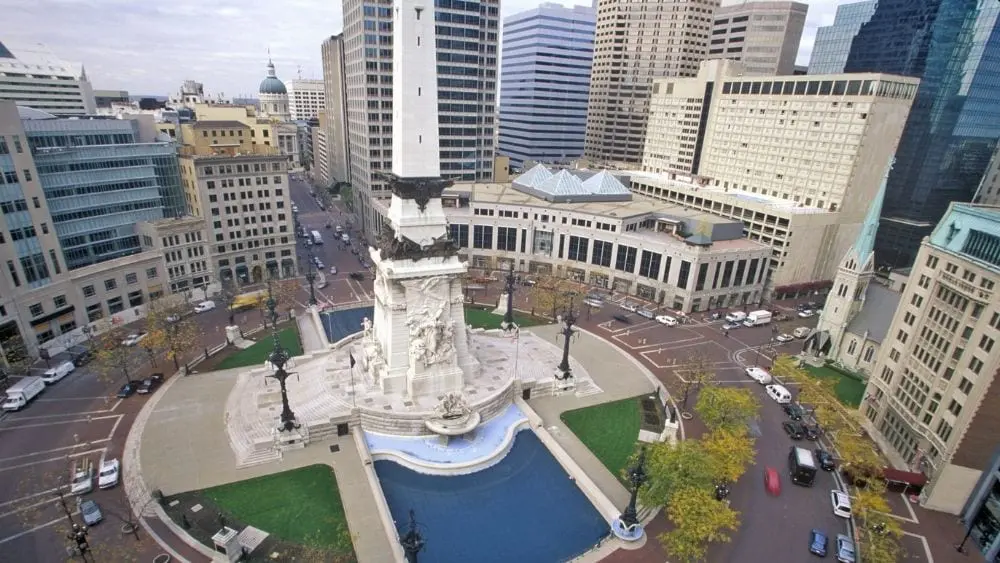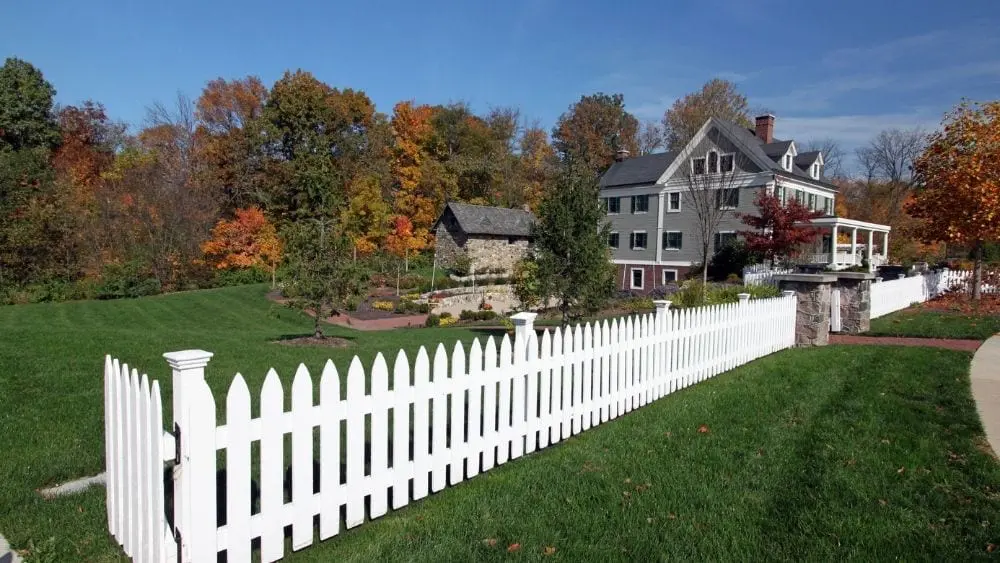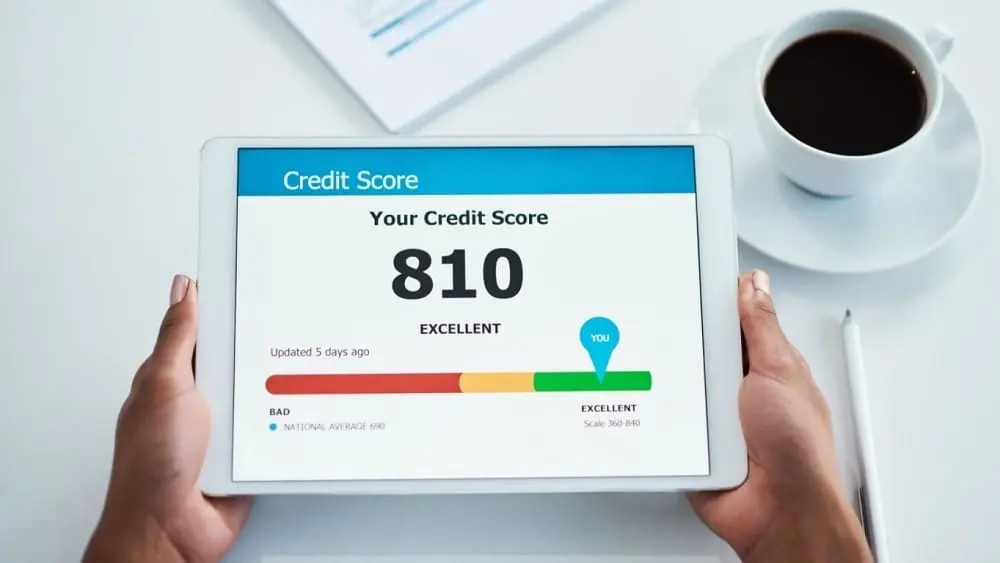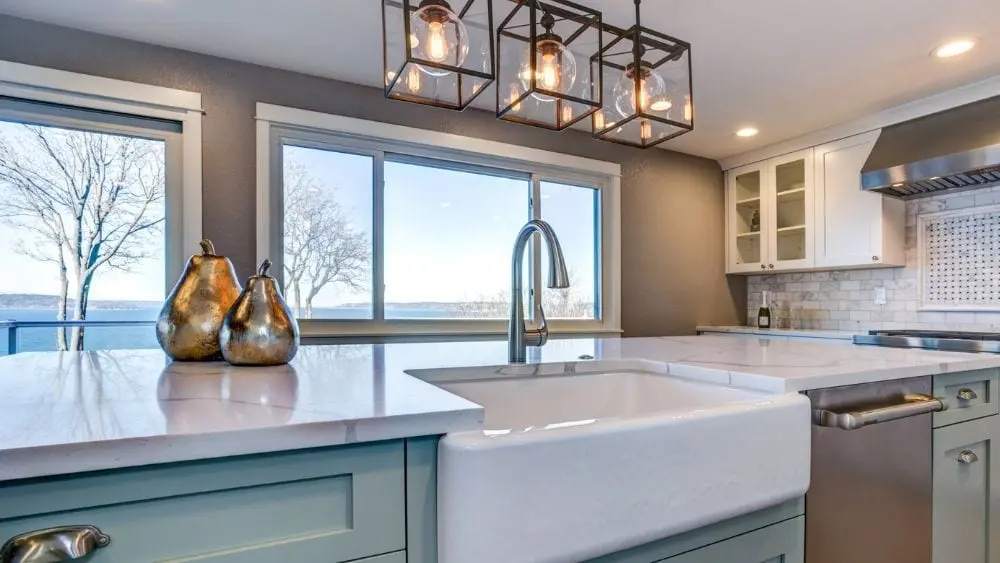
It’s got the perfect mix of small towns and bustling big cities, great job opportunities, and affordable cities and cost of living. Are you thinking of buying a home in the Hoosier State? There are many reasons it’s a good idea to pack up and move to Indiana, including its cheaper closing costs—some of the lowest in the country.
While homebuyers focus on saving a down payment, they often overlook closing costs. In a nutshell, closing costs are a blanket term encompassing all the fees homebuyers need to pay on closing day before they receive the keys to their new property. Ultimately, homebuyers should count on spending about 2 percent to 5 percent of their home’s purchase price on closing day.
How Much are Closing Costs in Indiana?

Homebuyers in Indiana can breathe a sigh of relief: As it turns out, the state has some of the country’s lowest closing costs, second only to Missouri. On average, closing costs total about $1,396, according to a 2021 report by ClosingCorp that provides research on the U.S. real estate industry. That figure makes up 0.84 percent of the home’s price tag. In comparison, the national average is $6,087.
Across the board, closing costs tend to be much cheaper in and around the Midwest, with Missouri, Indiana, Iowa, North Dakota, South Dakota rounding out the top 5 states with the lowest closing costs.
Keep in mind, your closing costs in Indiana will be slightly more than ClosingCorp’s estimates. Its data didn’t factor in certain expenses, such as mortgage loan origination fees and private mortgage insurance, which will add a few thousand to your closing costs bill. It also didn’t consider expenses like extra insurance policies or a land survey fee.
Where you plan to live in Indiana will also dictate the amount you will owe in closing costs. ClosingCorp’s estimate was based on an average home price of $166,003, but home prices have increased since then, according to the Indiana Association of Realtors. As of August 2021, the average sales price for homes in the Hoosier State climbed to $251,178.
If homebuyers aim to pay 2 to 5 percent on a home priced at $251,178, closing costs could be somewhere between $5,023 and $12,558.
Ultimately, how much you pay will depend on the price of your home and the complexity of the home sale.
What’s Typically Included in Indiana’s Closing Costs?

Let’s look at some of the common closing costs you’ll likely incur in Indiana, including the state-specific details you’ll want to know:
Loan Origination Fees
Getting a mortgage doesn’t come free. Unless you have the cold hard cash to buy your new home, the first stop you’ll make is to your lender and the first charge will be loan origination fees. This expense covers all the administrative work your lender charges, from setting up your loan application to processing funding at closing.
Estimate your loan origination fees to run between 0.5 percent to 1 percent of the loan amount.
Credit Report Fee
During the underwriting process, your lender needs to check your credit score before offering you a loan. They’ll run a thorough credit check on you, which includes requesting your credit report from the various credit bureaus to have a closer look at how you’ve managed your previous debts.
Expect the lender to pass along to expense to you. If more than one borrower is on the loan application, your lender will need to pull multiple credit reports.
Escrow Fees
Title companies, lenders, real estate agents, and attorneys can handle closings in Indiana. You may decide to recruit a title company or escrow agent to guide you through the entire process.
The title company acts as a neutral third party between you and the seller or homebuilder. In Indiana, buyers and sellers typically split escrow fees; this arrangement may change depending on negotiations between the two parties on who pays for what.
The title company will coordinate key parts of the closing process, including ordering a title search, helping you with buying title insurance, and ensuring you close on time without any hiccups along the way.
Attorney Fees
While it isn’t mandatory in Indiana, you may decide to hire a real estate attorney to help with legal documents, especially property transfer documents.
An attorney can also draft your purchase agreement, certify deeds, and review your home insurance and title insurance policies. Your real estate agent or title company may also recommend you hire a lawyer if your home purchase is a complex one, (e.g., buying from outside of the state).
The cost for hiring a real estate attorney in Indiana will vary, depending on where you are in the state, what you need your lawyer to do, and the level of complexity. Some real estate lawyers charge by the hour while others charge a flat fee.
Title Search and Title Insurance
In Indiana, it’s common for your title and escrow company to order a title search on the property you’re preparing to buy. The title search is a pivotal step in the homebuying process—essentially, it’s an in-depth review of the property’s title history to verify your seller has the right to transfer ownership.
After the title search is complete, you’ll need to cover your bases with title insurance for both you and your lender. Title insurance protects both parties in case there are claims on your property or something critical is missed during the search. Your title company will help you with purchasing adequate title insurance that meets your lender’s requirements. It’s a one-time expense, so the insurance applies for as long as you’re the homeowner of the property.
In Indiana, buyers usually pay for the lender’s title insurance costs, while sellers pay for the owner’s insurance premiums. But this guideline isn’t set in stone—if you’re negotiating with the seller, you could divvy up these expenses.
Real Estate Transfer Tax
Here’s a key part of the closing costs process where Indiana homebuyers catch a big break: The Hoosier state is only one in 12 that doesn’t charge transfer taxes. Typically, there are state and county real estate transfer taxes, but Indiana homebuyers and sellers avoid this expense altogether.
Property Taxes
Indiana has some of the lowest property taxes in the country, collecting an average of 0.88 percent of a property’s annual market value.
Homebuyers will pay for prorated property taxes at closing, and then biannually moving forward. Be sure to check property tax due dates in your county and mark them on your calendar.
Homeowner’s Insurance

Lenders typically require you to have a homeowner’s insurance policy paid for at least the first six months in effect at closing. Homeowner’s insurance is crucial because it covers any physical damage to your home caused by fire, wind, vandalism, or theft.
Do your research to ensure you will have adequate coverage, depending on where you live and what you want to insure.
Homeowner’s insurance is a “prepaid” expense, so it must be paid in cash at closing and can’t be rolled into your home financing.
Appraisal and Home Inspection
Before your lender decides it’s safe to transfer your home loan, you’ll need to clear a few more checkpoints with a successful appraisal and home inspection.
To start, your lender will send a third-party appraiser to your potential new home to make sure it’s priced at the proper value. The appraiser will scan the home, its size, features, and condition to determine how it stacks up next to homes priced similarly in the community to determine its fair market value. This assures your lender they can sell the property and recoup their costs if you can’t keep up with your mortgage and default on your loan.
A home inspection provides a different function. In this case, an inspector will conduct a thorough walkthrough of the property to confirm everything is in good running order from the foundation to the roof. Pay attention to their feedback: The home inspector will point out already existing or may surface in the coming years. You can use this information to negotiate with your seller or ask them to make repairs before finalizing the deal.
The homebuyer pays for both the appraisal and home inspection.
Private Mortgage Insurance
If you aren’t providing a 20 percent down payment, your lender will expect you to buy private mortgage insurance, or PMI. It allows borrowers to qualify for a conventional loan even if they put down only 5 to 19.99 percent of their mortgage.
While you’re the one paying for the insurance, the coverage is for your lender; because you haven’t put down 20 percent, PMI protects your lender in case of loan default.
This cost isn’t included in the ClosingCorp tally of closing costs expenses, but PMI typically ranges from 0.25 percent to as high as 2.25 percent of your outstanding loan balance, depending on the size of your down payment and credit score.
How Can I Lower My Closing Costs in Indiana?
Is the sticker shock setting in? Buying a home can be a daunting process, with a lengthy list of expenses. If you’re worried about how you’ll come up with the cash to close on your dream home, here are some key strategies you can use to save money.
Closing Cost Assistance
Take advantage of Indiana’s homeownership assistance programs to put a significant dent in your closing costs.
For example, the Indiana Housing and Community Development Authority offers several programs exclusively to first-time homebuyers in the form of down payment assistance and 30-year-fixed rate loans. While these aren’t closing cost grants, they’ll alleviate some of the financial burden of a down payment and monthly mortgage payments, freeing up funds for your closing costs.
It’s also worth looking into local homeownership assistance programs, which you can find across the state. In East Chicago, for example, homebuyers can apply for down payment and closing cost assistance in the form of a zero-interest second mortgage of up to $25,000 for the purchase of a newly constructed home.
Get Your Finances in Shape

Homebuyers should prioritize getting their finances in check before applying for a mortgage so they can secure a competitive interest rate.
If you have a high credit score when you apply for a home loan, your lender may offer you a lower interest rate and better terms, which will save you thousands of dollars over the lifetime of your mortgage. This is a great way to see a dramatic decrease in your mortgage payments.
Check your credit score ahead of time to see if it needs some work or if it’s in good standing. Then focus on paying down your debts to keep your debt-to-income ratio low; don’t skip any payments on your existing loans, and don’t apply for more credit before you make your case to lenders.
Save as much as you can for your down payment, too. The closer you get to the 20 percent down payment threshold, the less you’ll have to pay in PMI. Even if you only have a 15 percent down payment, once you hit the 20 percent equity mark as a homeowner, you’re off the hook for PMI.
Comparison Shop
Take your time to compare several title companies, inspectors, and surveyors. You can also compare home loan offers from various lenders to find the best fit. Read reviews from previous customers to ensure the vendors are appropriately accredited, and then check various price points to confirm you’re getting the best deal.
Some title companies or lenders have a list of go-to professionals on hand that they’ve approved. Using their referrals may come with steep discounts.
Seller Concessions

There is always room for negotiation with the seller (unless you’re in a seller’s market and you’re competing to buy your dream home).
Work with your seller to reach a compromise on who pays for what. If you’re looking for upgrades, for example, you can ask the seller to cover portions of your closing costs so you can pay for repairs.
Negotiate Fees
When you receive your paperwork, carefully read the lender’s Closing Disclosure form to understand what fees and services you are asked to pay.
If you have an established relationship with your lender, ask if they will omit certain expenses from the final bill. You may even ask if they could stagger these expenses over the term of the loan instead of at closing. Finally, you can negotiate the removal of some fees. Charges you can try to eliminate are rate lock fees, loan processing fees, and broker rebates.
No-Closing-Cost Mortgages
Some homebuyers can opt into a “no-closing-cost” mortgage as a strategy to keep this expense at a minimum. With no-closing-cost mortgages, your lender agrees to pay for part or all your closing costs; in turn, you pay a higher interest rate.
In the long run, this could cost you more money because of the bump in your interest rate, but for some homeowners, it may be their best choice.
Adding Closing Costs to Your Home Financing
If you don’t have the funds to pay closing costs, you may be able to roll this into your home loan. This means you’re off the hook for paying for these expenses on closing day, but you’ll make up for it via higher monthly mortgage payments. Ultimately, you’re paying interest on the closing costs tacked onto your first mortgage.
Check with your lender to see if this option is available. Keep in mind, not all closing costs can be included because some, such as homeowner’s insurance, must be paid upfront.
Other Indiana Resources

Carmen Chai is an award-winning Canadian journalist who has lived and reported from major cities such as Vancouver, Toronto, London and Paris. For NewHomeSource, Carmen covers a variety of topics, including insurance, mortgages, and more.
 Your 2021 Guide to Closing Costs in Illinois
Your 2021 Guide to Closing Costs in Illinois